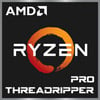
Google Tensor G3 Benchmark, Test and specs
Last updated:
The Google Tensor G3 is a 8 core processor. It can process 8 threads concurrently and is based on the 3. gen of the Google Tensor series. The processor was released in Q3/2023. The Google Tensor G3 scores 1,267 points with one CPU core in the Geekbench 5 benchmark. When using all CPU cores, the result is 3,631 points.

| Name: | Google Tensor G3 |
|---|---|
| Family: | Google Tensor (3) |
| CPU group: | Google Tensor G3 (1) |
| Architecture: | G3 |
| Segment: | Mobile |
| Generation: | 3 |
| Predecessor: | Google Tensor |
| Successor: | -- |
CPU Cores and Base Frequency
The 8 CPU cores of the Google Tensor G3 clock with 2.91 GHz. The number of CPU cores and the clock frequency of the processor are largely responsible for the overall performance.
| CPU Cores / Threads: | 8 / 8 |
|---|---|
| Core architecture: | hybrid (Prime / big.LITTLE) |
| A-Core: | 1x Cortex-X3 |
| B-Core: | 4x Cortex-A715 |
| C-Core: | 4x Cortex-A510 |
| Hyperthreading / SMT: | No |
|---|---|
| Overclocking: | No |
| A-Core Frequency: | 2.91 GHz |
| B-Core Frequency: | 2.37 GHz |
| C-Core Frequency: | 1.70 GHz |
Artificial Intelligence and Machine Learning
Processors with the support of artificial intelligence (AI) and machine learning (ML) can process many calculations, especially audio, image and video processing, much faster than classic processors. Algorithms for ML improve their performance the more data they have collected via software. ML tasks can be processed up to 10,000 times faster than with a classic processor.
| AI hardware: | Google Tensor AI |
|---|---|
| AI specifications: | Google Edge TPU |
Internal Graphics
With the ARM Immortalis-G715 MP10, the Google Tensor G3 has an build in graphic solution. It has 10 SM processors, which have a total of -- texture shaders. The iGPU not only enables games, but also significantly accelerates video playback.
| GPU name: | ARM Immortalis-G715 MP10 |
|---|---|
| GPU frequency: | 0.89 GHz |
| GPU (Turbo): | No turbo |
| Compute units: | 10 |
| Shader: | -- |
| Hardware Raytracing: | No |
| Release date: | Q4/2022 |
| Max. displays: | 0 |
|---|---|
| Generation: | Vallhall |
| Direct X: | 12 |
| Technology: | 4 nm |
| Max. GPU Memory: | -- |
| Frame Generation: | No |
Hardware codec support
Processors that have an integrated graphics can play videos faster and more efficiently. This can have a positive effect on the battery life of notebooks, for example.
| h265 / HEVC (8 bit): | Decode / Encode |
|---|---|
| h265 / HEVC (10 bit): | Decode / Encode |
| h264: | Decode / Encode |
| VP8: | Decode / Encode |
| VP9: | Decode / Encode |
| AV1: | Decode / Encode |
|---|---|
| AVC: | Decode / Encode |
| VC-1: | Decode / Encode |
| JPEG: | Decode / Encode |
Memory & PCIeThe Google Tensor G3 supports up to 12 GB memory in up to 2 (Dual Channel) memory channels. This results in a maximum memory bandwidth of 53.0 GB/s. |
|
| Memory type: | Memory bandwidth: |
|---|---|
| LPDDR5-5500 | 53.0 GB/s |
| Max. Memory: | 12 GB |
| Memory channels: | 2 (Dual Channel) |
| ECC: | No |
| PCIe: | |
| PCIe Bandwidth: | -- |
Thermal ManagementWith the TDP, the processor manufacturer specifies the cooling solution required for the processor. The Google Tensor G3 has a TDP of 10 W. |
|
|---|---|
| TDP (PL1 / PBP): | 10 W |
| TDP (PL2): | -- |
| TDP up: | -- |
| TDP down: | -- |
| Tjunction max.: | -- |
Technical details
The Google Tensor G3 has a 0.00 MB large cache. The processor is manufactured in 4 nm. Modern production increases the efficiency of the processor.
| Technology: | 4 nm |
|---|---|
| Chip design: | Chiplet |
| Socket: | -- |
| L2-Cache: | -- |
| L3-Cache: | -- |
| AES-NI: | No |
| Operating systems: | Android |
| Virtualization: | None |
|---|---|
| Instruction set (ISA): | Armv9-A (64 bit) |
| ISA extensions: | -- |
| Release date: | Q3/2023 |
| Release price: | -- |
| Part Number: | -- |
| Documents: | -- |
Rate this processor
Benchmark results

The benchmark results for the Google Tensor G3 have been carefully checked by us. We only publish benchmark results that have been created by us or that have been submitted by a visitor and then checked by a team member. All results are based on and fullfill our benchmark guidelines.
Screenshots:
Screenshots:
Geekbench 5, 64bit (Single-Core)
Geekbench 5 is a cross plattform benchmark that heavily uses the systems memory. A fast memory will push the result a lot. The single-core test only uses one CPU core, the amount of cores or hyperthreading ability doesn't count.

|
Intel Xeon Gold 5317
12C 24T @ 3.60 GHz |
||

|
Intel Xeon Silver 4309Y
8C 16T @ 3.60 GHz |
||

|
Intel Xeon W-2245
8C 16T @ 4.70 GHz |
||
|
|
Google Tensor G3
8C 8T @ 2.91 GHz |
||

|
Intel Core i7-10700F
8C 16T @ 4.80 GHz |
||

|
Intel Core i7-10700
8C 16T @ 4.80 GHz |
||

|
AMD Ryzen Threadripper PRO 3995WX
64C 128T @ 4.20 GHz |
||
Geekbench 5, 64bit (Multi-Core)
Geekbench 5 is a cross plattform benchmark that heavily uses the systems memory. A fast memory will push the result a lot. The multi-core test involves all CPU cores and taks a big advantage of hyperthreading.

|
AMD Ryzen 5 1500X
4C 8T @ 3.30 GHz |
||

|
Intel Core i7-4771
4C 8T @ 3.60 GHz |
||

|
Intel Core i5-9400T
6C 6T @ 2.80 GHz |
||
|
|
Google Tensor G3
8C 8T @ 2.91 GHz |
||

|
Intel Core i5-6600K
4C 4T @ 3.60 GHz |
||

|
Intel Core i7-7920HQ
4C 8T @ 3.70 GHz |
||

|
Intel Core i5-8260U
4C 8T @ 2.60 GHz |
||
Geekbench 6 (Single-Core)
Geekbench 6 is a benchmark for modern computers, notebooks and smartphones. What is new is an optimized utilization of newer CPU architectures, e.g. based on the big.LITTLE concept and combining CPU cores of different sizes. The single-core benchmark only evaluates the performance of the fastest CPU core, the number of CPU cores in a processor is irrelevant here.

|
AMD Ryzen 5 5600H
6C 12T @ 4.20 GHz |
||

|
Intel Xeon W-1290
10C 20T @ 5.20 GHz |
||

|
AMD Ryzen 5 5600HS
6C 12T @ 4.20 GHz |
||
|
|
Google Tensor G3
8C 8T @ 2.91 GHz |
||

|
AMD Ryzen 5 3600XT
6C 12T @ 4.50 GHz |
||

|
Intel Core i7-1160G7
4C 8T @ 4.40 GHz |
||

|
AMD Ryzen 9 PRO 6950H
8C 16T @ 4.90 GHz |
||
Geekbench 6 (Multi-Core)
Geekbench 6 is a benchmark for modern computers, notebooks and smartphones. What is new is an optimized utilization of newer CPU architectures, e.g. based on the big.LITTLE concept and combining CPU cores of different sizes. The multi-core benchmark evaluates the performance of all of the processor's CPU cores. Virtual thread improvements such as AMD SMT or Intel's Hyper-Threading have a positive impact on the benchmark result.

|
Intel Core i5-9600T
6C 6T @ 3.20 GHz |
||

|
Intel Xeon E5-1680 v2
8C 16T @ 3.00 GHz |
||

|
Intel Core i3-10305T
4C 8T @ 3.70 GHz |
||
|
|
Google Tensor G3
8C 8T @ 2.91 GHz |
||

|
Intel Xeon E3-1575M v5
4C 8T @ 3.00 GHz |
||

|
Valve Steam Deck (2023 Refresh)
4C 8T @ 2.80 GHz |
||

|
Intel Xeon E5-2620 v3
6C 12T @ 2.80 GHz |
||
iGPU - FP32 Performance (Single-precision GFLOPS)
The theoretical computing performance of the internal graphics unit of the processor with simple accuracy (32 bit) in GFLOPS. GFLOPS indicates how many billion floating point operations the iGPU can perform per second.

|
MediaTek MT6572M
ARM Mali-400 @ 0.40 GHz |
||

|
Samsung Exynos 3110
PowerVR SGX540 @ 0.20 GHz |
||

|
MediaTek MT6575M
PowerVR SGX531 @ 0.28 GHz |
||
|
|
Google Tensor G3
ARM Immortalis-G715 MP10 @ 0.89 GHz |
||

|
MediaTek Dimensity 9200+
ARM Immortalis-G715 MP11 @ 0.98 GHz |
||

|
MediaTek Dimensity 9200
ARM Immortalis-G715 MP11 @ 0.98 GHz |
||

|
MediaTek Dimensity 9000+
ARM Mali-G710 MP10 @ 0.90 GHz |
||
AnTuTu 9 Benchmark
The AnTuTu 9 benchmark is very well suited to measuring the performance of a smartphone. AnTuTu 9 is quite heavy on 3D graphics and can now also use the "Metal" graphics interface. In AnTuTu, memory and UX (user experience) are also tested by simulating browser and app usage. AnTuTu version 9 can compare any ARM CPU running on Android or iOS. Devices may not be directly comparable when benchmarked on different operating systems.
In the AnTuTu 9 benchmark, the single-core performance of a processor is only slightly weighted. The rating is made up of the multi-core performance of the processor, the speed of the working memory, and the performance of the internal graphics.
In the AnTuTu 9 benchmark, the single-core performance of a processor is only slightly weighted. The rating is made up of the multi-core performance of the processor, the speed of the working memory, and the performance of the internal graphics.

|
Qualcomm Snapdragon 8 Gen 1
8C 8T @ 3.00 GHz |
||

|
Apple A16 Bionic
6C 6T @ 3.46 GHz |
||

|
Samsung Exynos 2200
8C 8T @ 2.80 GHz |
||
|
|
Google Tensor G3
8C 8T @ 2.91 GHz |
||

|
Qualcomm Snapdragon 888+
8C 8T @ 3.00 GHz |
||

|
Apple A15 Bionic (5-GPU)
6C 6T @ 3.23 GHz |
||

|
MediaTek Dimensity 8000
8C 8T @ 2.75 GHz |
||
Benchmarks

Geekbench 5 (SC)
2,488 entries
2,488 entries

Geekbench 5 (MC)
2,461 entries
2,461 entries

Geekbench 6 (SC)
1,755 entries
1,755 entries

Geekbench 6 (MC)
1,703 entries
1,703 entries

FP32 SP (iGPU)
2,042 entries
2,042 entries

AnTuTu 9 Benchmark
90 entries
90 entries
Popular comparisons
back to index





